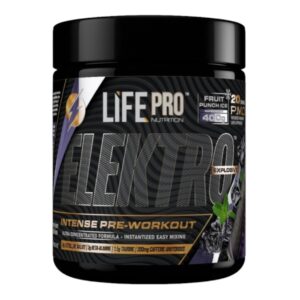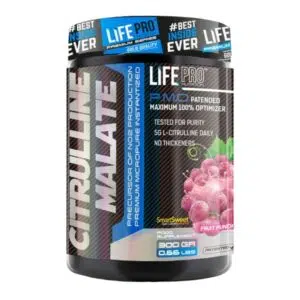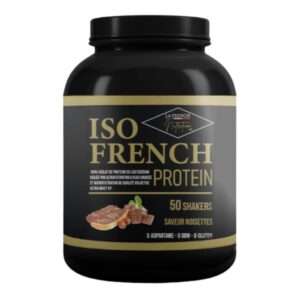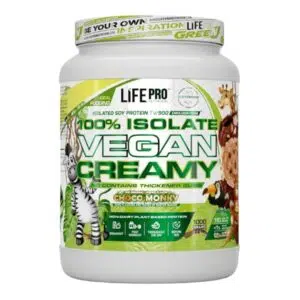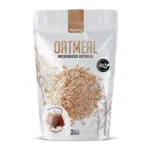Muscle recovery is an essential element for progress in sports. Indeed, good recovery helps to avoid injury and pain, and helps to implement the necessary adaptations that result in gains in strength, endurance or muscle volume. In this article, we'll give you some tips on how to improve your muscle recovery, so that you can get the most out of your training sessions.
Sleep, an invaluable ally for recovery
Sleep is undoubtedly one of the most important aspects of muscle recovery. During this period when the body is at rest, many physiological functions are active, including the repair of muscles damaged during exercise and the release of anabolic hormones such as testosterone andgrowth hormone.

Improve the quality of your sleep
To benefit fully from the effects of sleep on muscle recovery, you need to have enough time to sleep and get quality sleep. Here are a few tips to help you achieve this:
- Respect a regular sleep rhythm: by going to bed and getting up at set times every day, the body gets used to this rhythm and sleep quality improves.
- Promote a calm, sleep-inducing environment: it's important to create a serene atmosphere in the bedroom, with a cool temperature, complete darkness and the absence of disruptive noises.
- Relaxing before bed: to help you fall asleep, it's a good idea to set up a relaxing routine before bedtime, such as taking a hot bath or doing some relaxation exercises.
Get enough sleep to allow your muscles to repair themselves
The ideal length of sleep may vary from person to person, but in general it's recommended to sleep between 7 and 9 hours a night. That said, some people may require more sleep, particularly athletes or those involved in intensive sports. Don't hesitate to listen to your body and adjust the length of your sleep according to your needs.
Hydration as the key to muscle recovery
Water accounts for almost 75% of a muscle's composition, and plays a crucial role in the recovery process after exercise. Good hydration enables metabolic waste products accumulated during exercise to be eliminated more rapidly, thereby promoting the repair of damaged muscle fibres.
Adopt a winning hydration strategy

For more effective muscle recovery thanks to hydration, here are a few tips to follow:
- Drink regularly throughout the day, not just during or after training;
- Choose electrolyte-rich drinks such as mineral water or fruit juice to restore your fluid balance more quickly and avoid cramps;
- Look out for signs of dehydration such as dark urine, excessive thirst or reduced energy.
Think active rehydration
After intense effort, you can also use the active rehydration technique to promote better muscle recovery. All you need to do is engage in light activity while staying hydrated (e.g. walking, cycling, swimming...).
Nutrition: a key role in muscle recovery
After physical effort, the body's energy reserves are depleted and muscle fibers are damaged. To facilitate recovery and repair this damage, it is crucial to adopt a suitable diet, including :
- Proteins: these nutrients help repair and build muscle fibers. Protein sources can be animal (meat, fish, eggs, dairy products) or vegetable (legumes, whole grains, seeds, etc.).
- Carbohydrates: to replenish energy reserves and prevent fatigue. It's important to choose complex carbohydrates (wholegrain cereals, legumes, vegetables) rather than simple sugars (sweets, cookies, soft drinks), which cause blood sugar spikes.
- Vitamins and minerals: these micronutrients play an essential role in energy production, immune system function and cell protection against oxidative stress. These include magnesium, a deficiency of which can lead to cramps and sleep disorders. To cover your vitamin and mineral needs, we recommend a daily intake of fresh fruit and vegetables, as well as magnesium-rich foods such as oilseeds and certain mineral waters.
Essential dietary supplements for better recovery

While a balanced and varied diet generally covers the nutrient requirements essential for muscle recovery, certain situations may require additional supplements:
- When there is a sudden increase in training volume or intensity: this can lead to over-consumption of energy and increased nutrient requirements, particularly in top-level athletes.
- In case of proven deficiencies: despite an adapted diet, some individuals may lack certain nutrients, such as iron or magnesium, a deficiency of which can have an impact on their recovery.
However, it is advisable to consult a health professional before taking any dietary supplements, to determine whether they are really necessary and adapted to your specific needs.
The importance of stretching and active rest
Stretching improves muscle flexibility and reduces stiffness that may occur after exercise. In addition to promoting better blood circulation, they help reduce aches and pains.
Active rest: optimized recovery
After intense effort, it's important to alternate between rest periods and training sessions to allow the body to recover properly. Active rest, which involves gentle physical activity (walking, yoga, swimming), promotes blood circulation and helps eliminate waste products produced during exercise. These activities also help maintain joint mobility and improve muscle flexibility.
Use passive recovery methods
Finally, several techniques and tools can be used to promote muscle relaxation and improve your overall recovery. Among the most common are
- Self-massage with a foam roller releases accumulated tension in muscles and fascia;
- Hot (with Epsom salt for magnesium) or cold baths can help reduce inflammation and promote better blood circulation;
- The use of electromagnetic rehabilitation devices (EMS) helps speed up the natural recovery process by stimulating muscles with pulses of electric current.
Muscle recovery: in a nutshell
By applying these tips and tricks, you should be able to significantly improve your muscle recovery and progress more effectively in your sporting activities. Don't forget that every individual is different, and that certain methods may be more suited to your specific needs: so don't hesitate to try them out and adapt your habits accordingly.

